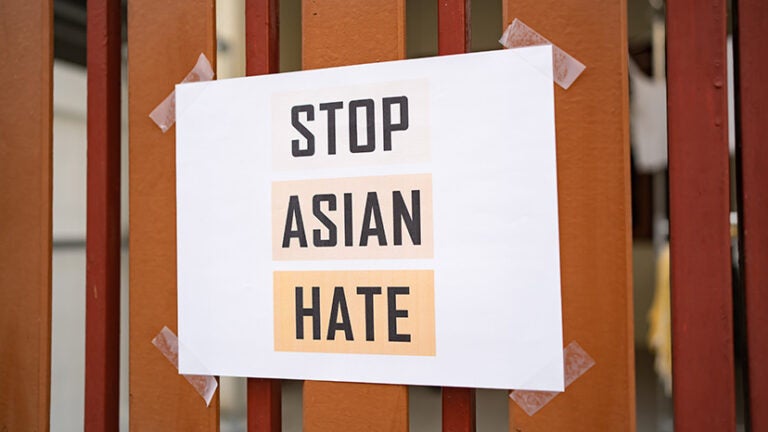
In the midst of the COVID-19 pandemic, a wave of anti-Asian violence has risen
The COVID-19 pandemic has been associated with rising reports of crimes targeting people of Asian and Pacific Islander descent. On March 16, a white man was charged with killing eight people, including six women of Asian and Pacific Islander descent, at Atlanta-area spas.
While the mass killing and possible motives continue to be investigated, many — including members of Congress — are speaking out about the growing incidents of anti-Asian violence.
Rep. Judy Chu of Monterey Park, California, chair of the Congressional Asian Pacific American Caucus, has called for a national day to speak out against the violence, and President Joe Biden and Vice President Kamala Harris traveled to Atlanta to speak to local lawmakers and Asian American advocates.
Several USC experts outlined the history of anti-Asian violence in America and called for action.
The Atlanta massacre is part of a wider pattern of violence
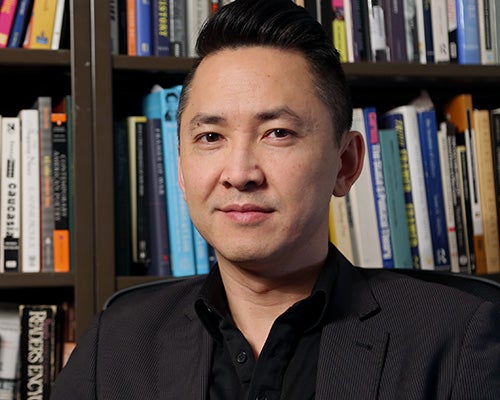 In a March 18 interview on the PBS program News Hour, University Professor Viet Thanh Nguyen, Aerol Arnold Chair of English and professor of English, American studies and ethnicity and comparative literature at USC Dornsife, said the shootings were part of a wider pattern of anti-Asian violence.
In a March 18 interview on the PBS program News Hour, University Professor Viet Thanh Nguyen, Aerol Arnold Chair of English and professor of English, American studies and ethnicity and comparative literature at USC Dornsife, said the shootings were part of a wider pattern of anti-Asian violence.
The Pulitzer Prize-winning author of The Committed (Grove Press, 2021) spoke of his own experience and that of his family, and said, “Those of us familiar with Asian American history know that Asians have been targeted for violence in this country as long as there have been Asian immigrants in this country.”
He spoke of the misguided notion of Asian Americans as the “model minority” and pointed to the community’s often-overlooked socioeconomic diversity.
“Asian Americans are often situated today, in contemporary discourse, as somehow being safe. We’re the ‘model minority.’ We are successful in college, et cetera, et cetera,” he said. “And people are not aware of the fact that there’s huge diversity in the Asian American population. There are a lot of poor Asian Americans, a lot of Asian Americans living in vulnerable economic situations, and they’re ripe for this kind of violence.”
Atlanta murders were shaped by a complicated history
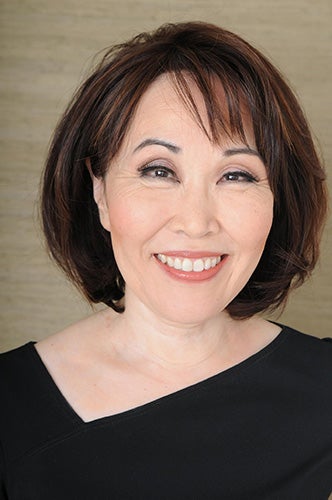
Dorinne Kondo, a professor of American studies and ethnicity and anthropology at the USC Dornsife College of Letters, Arts and Sciences, pointed to the historic roots of anti-Asian violence.
“Histories of imperialism and war, Orientalism as the masculine penetration of a supine, feminized Asia and the scapegoating of Asians as disease-bearing, eternal foreigners all shape the Atlanta murders,” she said. “These forces shape everyday lives through institutions, foreign policy and laws; they permeate popular and ‘high’ culture, from the internet to TV to theater to opera.”
Kondo, who is the former director of Asian American studies at USC Dornsife, called for deeper consideration of history and warned against dismissing the Atlanta murders as an isolated incident.
“We need to combat economic inequality, educate ourselves about BIPOC histories, organize in solidarity and critique the ideologies that shape our everyday assumptions,” she said. “This was not the result of one white man’s ‘bad day.’ Historical power relations position Asian women as submissive, exotic fetishes who exist to service ‘Western’ men. We need to upend those power structures.”
Don’t blame the victims
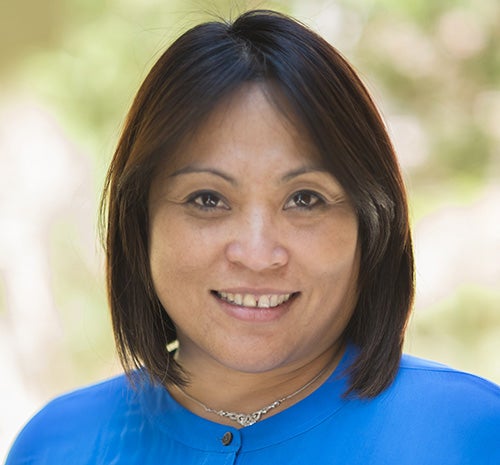
Rhacel Salazar Parreñas, professor of sociology and gender studies at USC Dornsife, researches labor, gender and international migration. While some have linked the massacre to human sex trafficking, she explains how this could paint a false picture.
“Anti-trafficking groups have tied this targeted mass killing of eight individuals, including six Asian American women, to sex trafficking,” she said. “They suggest this violence was bound to happen because these ‘illicit massage businesses’ are ‘inherently violent.’ This is a dangerously misleading assertion.
“The association of commercial sex with violence suggests the victims knowingly put themselves in harm’s way. One of many problems with calling it sex trafficking is that it redirects us from seeing it for what it is. It is a gendered racialized violence, dehumanizing Asian women as disposable bodies for white male rage.”
Asian women face both racism and sexism
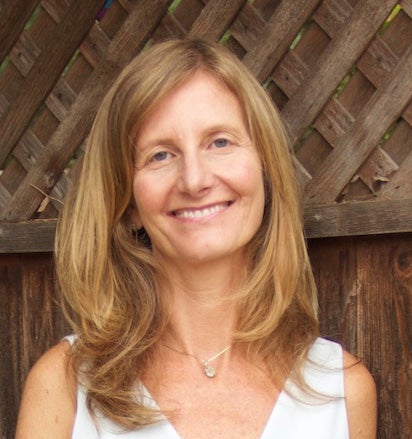
“The murders in Atlanta showcase the plight of Asian and Asian American women today. They live at the intersection of racism and misogyny, fetishized as sexual objects and seen as less than fully human subjects,” said Ariela Gross, professor of law and history at USC Dornsife and the USC Gould School of Law and an expert in race, slavery and civil rights law.
Gross points out the fallacy in the murderer’s attempts to explain his violent actions.
“The murderer tried to explain away his killing spree as a product of ‘sex addiction,’ and to some this suggested he was not racially motivated. On the contrary, that is how intersectionality works: Sexism is racialized in a violent fantasy of Asian American women’s total submission.”
USC Dornsife research found Asians reporting COVID-related discrimination
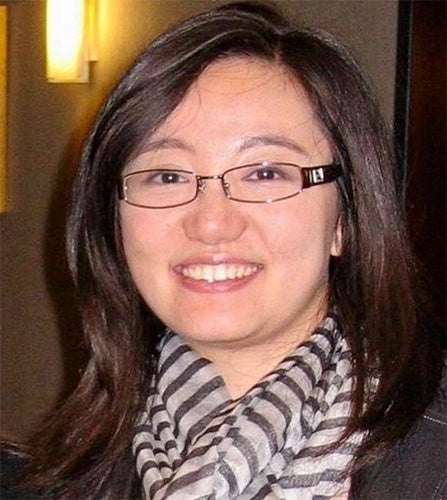
Ying Liu, research scientist at the USC Dornsife Center for Economic and Social Research, co-authored a study that showed Asians and Asian Americans were more than twice as likely as whites to report experiencing pandemic-related discrimination. She worries that the rise in anti-Asian violence may carry beyond the pandemic.
“At the very beginning of the pandemic, in March 2020, we first observed Asian Americans being the most vulnerable racial or ethnic group to experience COVID-related discrimination,” she said. “This gap has persisted in various phases of the pandemic.
“Now, one year later, we are seeing an increase in hate crimes against Asians. Will this be part of our new norm post-COVID?”
Combating anti-Asian racism in the classroom
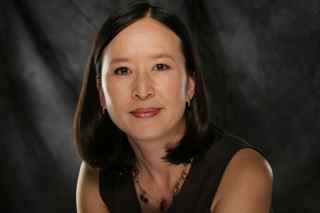
“Fueled by racist rhetoric, the characterization of COVID-19 as the ‘Chinese virus’ or the ‘Wuhan flu’ has created an environment of blame and xenophobia,” said Tracy Poon Tambascia, professor of clinical education at the USC Rossier School of Education.
Tambascia, whose scholarship includes international higher education and minoritized student access and success in higher education, recently wrote a recent piece about countering anti-AAPI racism in the classroom.
“Whether classes are held in person or online, it’s important for educators to be aware that such rhetoric can create traumatizing, unsafe and damaging environments for AAPI students,” she wrote.
“There are a number of things educators can do to address anti-AAPI racism. Educators cannot be neutral and need to develop the ability to turn a phrase into a learning moment.”
Asian American women fight back

Nayan Shah, professor of American studies and ethnicity and history, sees the massacre in Atlanta as the latest in a long pattern of violence against women of Asian descent.
“The upsurge of hateful violence in the pandemic and the targeted mass murder of Asian American women at their place of work in Georgia is part of an American continuum of violence, erasure and forgetting,” he said. “Asians are perceived and treated as anonymous and expendable labor in the United States. For more than 150 years, Asian women in the United States endured the sexualization of men who exploit them. In 1876, the federal government’s first racially targeted immigration laws sought to expel Asian women.”
But the tide may be turning as the Asian and Pacific Islander community gains representation in government, according to Shah.
“Today, with the highest number of Asian American legislators in the U.S. House and state legislatures, Asian American women are fighting back, demanding accountability and bold action to stem the tide of hate and to educate American society to recognize the harassment and suffering they endure and to uphold their lives.”
USC students who have been adversely affected by the recent violence in Atlanta or would like assistance may access the following events, resources and programs:
- March 25: The Rise of Anti-Asian Violence and How to Support APIDA Communities
Join APASS, SCAPE, APASA, and Helenes for an open discussion about the recent surge in hate crimes in the Asian American community and learn more about resources available for reporting and mental health, as well as action items & allyship against xenophobia and racism. Note: This will be an open event, so please feel free to invite non-Helenes to come as well! - The BIPOC Mental Health resource site is available to all students and connects the student community with resources, including therapists who share the same cultural identities. Students may request a specific therapist, specify a shared identity, or see a therapist who is a regular presence as an embedded counselor in the Student Equity and Inclusion Program centers.
- USC Student Health, Counseling and Mental Health Services also has a number of drop-in Let’s Talk programs where students can speak one-on-one with a clinician from Counseling and Mental Health.